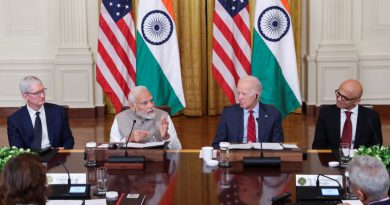Easter weekend begins with empty churches in coronavirus-hit U.S.
New York (Reuters) – As American Christians began Easter weekend under threat of the coronavirus, political leaders on Friday cautioned the faithful not to gather in churches and the country’s top infectious disease expert urged people to stick with social distancing restrictions.
Dr. Anthony Fauci and other health officials have pointed to declining rates of coronavirus hospitalizations and a lower need for intensive care – particularly in hardest-hit New York – as signs that social distancing measures are paying off.
“Now is no time to back off,” Fauci told CNN on Friday. “The virus will decide” when the country can reopen, he added.
Those measures continue to take a big toll on the economy – some economists are forecasting job losses of up to 20 million in April – raising questions about how long business closures and travel restrictions can be sustained. The Trump administration’s top economic officials said on Thursday they believe the U.S. economy could start to reopen for normal business in May.
But the United States has by far the world’s most confirmed coronavirus cases, at more than 472,000, with over 17,700 deaths.
After three days of record daily death rates at the epicenter of the U.S. epidemic, New York state’s grim COVID-19 tally was 777 on April 9, down from 799 deaths a day earlier, Governor Andrew Cuomo reported on Friday.
Hospitalizations rose to 290 from 200 a day earlier, but New York recorded a slight drop in intensive care unit admissions “for the first time since we started this journey,” Cuomo said.
“The bad news is we continue to see a tremendous number of lives lost in the state,” he said. “I understand intellectually why it is happening, but it doesn’t make it easier to accept.”
Meanwhile, with more than 90% of the country under stay-at-home orders, the holiest weekend on the Christian calendar began with services livestreamed or broadcast. Many churches sat empty on Good Friday, when they would typically be overflowing with worshippers.
“We gather normally at Easter to worship. We gather for children’s Easter egg hunts, for family meals, with friends. We can’t do any of that this year. I feel awful, but we can’t,” said New Jersey Governor Phil Murphy at his daily coronavirus briefing.
Chicago Mayor Lori Lightfoot, in an interview on CNN, also urged people not to attend church in person. “This is deadly serious,” she said. “You can express your faith in lots of different ways, but it can’t be by congregating.”
Churches are devising different ways to reach the faithful. One megachurch in South Carolina is turning to the model of once popular drive-in movies, with services shown on a big screen to worshippers in their cars in the parking lot and broadcast via their radios.
‘SATAN AND A VIRUS WILL NOT STOP US’
A handful of holdout U.S. churches plan to hold in-person services on Easter Sunday, saying their right to worship in person outweighs public health officials’ warnings that they may be spreading more than just the Gospel by holding large gatherings.
“Satan and a virus will not stop us,” said the Reverend Tony Spell, pastor of the evangelical Life Tabernacle Church near Baton Rouge, Louisiana. He expects a crowd of more than 2,000 to gather at his megachurch on Sunday.
Friday also marks another day of missed paychecks for millions of Americans, with restaurants, businesses, entertainment venues and schools shuttered across the nation.
An improved website run by Alphabet Inc’s Google went live on Friday to help New Yorkers who have struggled to file for unemployment benefits. Google also said it would work with Apple to create contact tracing technology to alert people via their phones when they have been in close proximity with someone who has tested positive for COVID-19, the sometimes deadly respiratory illness caused by the virus.
New York is set to open coronavirus testing sites in five minority neighborhoods to improve testing in a population that has been hit disproportionately hard. Statistics from several U.S. states have shown COVID-19 deaths among blacks and Hispanics to be far higher than their portion of the population.
Another population hit particularly hard are prison inmates. Some 450 inmates and staff have tested positive for the coronavirus at Chicago’s largest jail, county officials said. Inmate deaths and high rates of infections have also been reported by officials in New York and Louisiana.
New Jersey’s Murphy said he signed an executive order to expedite parole for inmates who pose a low public risk.
In Michigan, Democratic Governor Gretchen Whitmer issued an order barring residents from moving between residences except to perform specific tasks, a move that appeared aimed at keeping people from moving around the state to vacation homes.
Despite some reasons for optimism, healthcare workers in New York and other coronavirus hotspots have seen a wave of demoralizing deaths this week.
Emily Muzyka, a nurse at New York-Presbyterian Hospital, has held patients’ hands through final breaths in the past, but things have changed.
“If I have to do that now,” she said, “it will be through gloves.”



